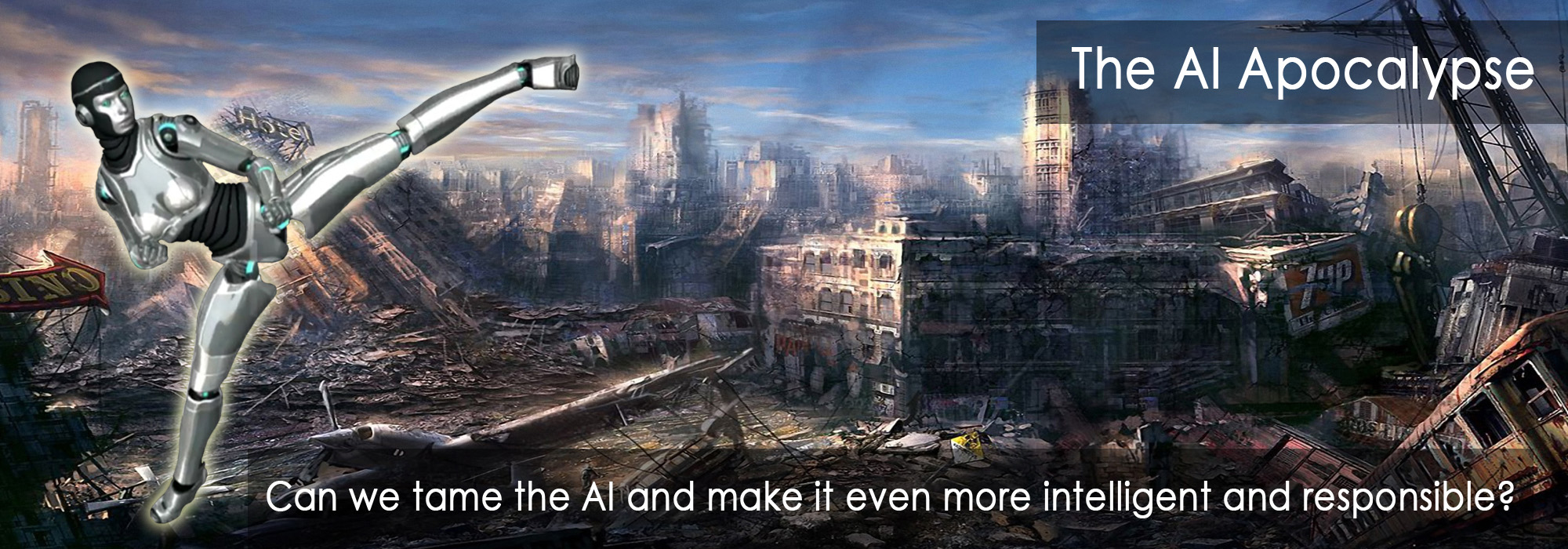
The AI Apocalypse
Tackling humanity's biggest existential threat.
Years 2015 and 2016 were landmark years for AI. 2015 saw Skype automatically translating its voice and video calls from one language to another, Facebook got it’s AI to describe images to blind people and Google got more than 2,700 AI projects going. 2016 began with big “AI Apocalypse” controversy, which continues to brew.
Leading tech luminaries from Elon Musk, Bill Gates to Stephen Hawking joined 8,000 other AI scientists to characterize AI as humanity's biggest existential threat. Their adversaries came out calling them Neo-Luddites for touting an AI apocalypse.
Whether the AI apocalypse threat is real or not, the need to make it immune to rogue actions is real and immediate.
Too much power at the disposal of humanity’s not so rare rogues will never be without the apocalyptic risk. In this age of big data, Internet, AI, that’s true whether it is global warming, nuclear war, or superhuman AI.
Humans are inherently contentious and egotistical. Defending our beliefs and actions at all costs is in our genes, regardless they are moral or immoral, humane or inhumane. We do the right things only if they are convenient and non-penalizing. If doing the right thing inflicts pain, that’s not right anymore. We will defend our actions because what we believe is always right, and adversary is always wrong. That human ego is at the heart of the progress that humanity has made, and it will be at the core of destruction that could become inevitable if technological advances aren’t moderated.
Our Vision On Convergence Of AI and Blockchain
Here’s our vision of how AI and blockchain complement each other. On one hand blockchain can rid AI of apocalyptic fears and make it safe, efficient and beneficial to humanity, and on the other AI improves blockchain by taking human intervention out of its consensus algorithm and currency creation and stabilizing mechanism.
Blockchain Advances AI
Currently all AI in a sense is machine-based and not consensus based, thereby concentrating its decision making locally within the machine. It not only limits its intelligence by not benefitting from collective wisdom of many, but also allows bad actors to take control. We believe democratizing, decentralizing, autonomizing and anonymizing the higher level of decision making by means of consensus of the peers rather than leaving it to egotistic control of individuals will curb the perils of AI.
We are forking an ultra low latency blockchain protocol that is capable of real time communication between IoT peers and building collective artificial intelligence (CAI) algorithms for their decentralized and democratized intelligent decision-making. We believe this new networking paradigm will have a profound impact in almost every walk of life. We are implementing and testing these paradigms in six use-cases that are mature enough for commercial launches. The first 10 claims of our patent on blockchained CAI and its enablement of safe autonomous traffic and nanonetworks of future can be viewed here.
AI Reciprocates
As much as blockchain can curb AI’s existential risk, AI can also help take blockchain to the next generation. Our work on using AI perfects the consensus algorithm to remove current blockchains’ vulnerability to centralization via pooling or syndication. AI can also remove human intervention in the process of currency, creation, supply and stabilization.